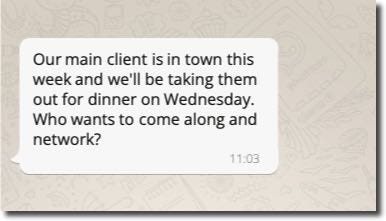No motivation at work
If you’ve arrived here thinking I'm going to outline a solution to having no motivation at work then you should turn back. I am not the solution. I am here to tell you that you have good reason to be unmotivated at work. Especially, if like me you work in an office.
I don't consider myself lazy, far from it. I like hard work (when it's real). I'd argue that being unmotivated to accomplish meaningless work is reflective of having a sound mind. I often question the absurdity of others who are seemingly eager to accomplish tasks that are clearly pointless.
From an evolutionary perspective, it makes sense that we need to have a purpose. If you really want to punish someone then you'd assign them an endless pointless task. And this is what happened to criminals in the Victorian era. The crank and the treadmill were two examples of this: prisoners had to turn a crank up to 10,000 times a day or walk for hours on giant circular treadmills. Neither of which had any purpose other than to keep the prisoners busy. The pointless nature would have only compounded the misery.

British journalist and writer, Oliver Burkeman, compares the ancient Greek myth of King Sisyphus to what is work for many of us today in the book Four Thousand Weeks.
[Four Thousand Weeks by Oliver Burkeman]
So getting better at processing your email is like getting faster and faster at climbing up an infinitely tall ladder: you’ll feel more rushed, but no matter how quickly you go, you’ll never reach the top.
In an ancient Greek myth, the gods punish King Sisyphus for his arrogance by sentencing him to push an enormous boulder up a hill, only to see it roll back down again, an action he is condemned to repeat for all eternity.
In the contemporary version, Sisyphus would empty his inbox, lean back, and take a deep breath, before hearing a familiar ping: “You have new messages…” It gets worse, though, because here the goalpost-shifting effect kicks in: every time you reply to an email, there’s a good chance of provoking a reply to that email, which itself may require another reply, and so on and so on, until the heat death of the universe.
At the same time, you’ll become known as someone who responds promptly to email, so more people will consider it worth their while to message you to begin with.
(By contrast, negligent emailers frequently find that forgetting to reply ends up saving them time: people find alternative solutions to the problems they were nagging you to solve, or the looming crisis they were emailing about never materializes.) So it’s not simply that you never get through your email; it’s that the process of “getting through your email” actually generates more email.
So just like King Sisyphus who was condemned to push a boulder up a hill or a Victorian prisoner tasked with endlessly turning the handle on a crank machine, we too are assigned with never-ending, pointless and soul-destroying work. It's no wonder that so many of us have no motivation at work.
The Metaverse
I've noticed recently that my level of motivation at work has reached an all-time low. Endlessly turning the handle on a crank machine serves more purpose than what I do. I work in marketing which is mostly smoke and mirrors, the work (if you can call it that) is all about pretending that you're adding value.
To make matters worse our senior managers are so bad that if you ever met them, you'd be suspicious, and think they were acting. I once considered looking for hidden cameras in the office after one particularly absurd meeting. I became convinced that being part of a staged comedy show made more sense than my workplace reality.
The main role of our management team is to pick up on new marketing buzzwords and then tell us how [insert buzzword] is now (another) top priority. I've lived through enough marketing fads to know they're all nonsense, and even if I hadn't, I like to think I'd be (somewhat) sceptical. Not our management team though, they'll be hell-bent that this new shiny elixir is the next best thing.
For the last few years, I've been hounded on the importance of machine learning and artificial intelligence (AI). This is undoubtedly the effect of watching one too many Elon Musk interviews. "We need to get with it" and "it's going to change everything" according to our management team.
While I don't doubt the impact AI will have in the future, in my field it's quite obvious that we're not being replaced by robots any time soon, although, I wish we were. It's safe to say that self-learning algorithms won't be tasked with turning the crank machine all the time there are bigger fish to fry like driverless cars and cancer.
Anyway, after several years of seeing hundreds of PowerPoint slides on the importance of AI, and how we need to change the way we work. It has now been forgotten about. Not because the mission has been accomplished. Far from it, absolutely nothing has changed. We still work in the same grossly inefficient way as we did before. The reason we've moved on is because our senior management (with magpie-like brains) have spotted a new shiny thing, and it's called: THE METAVERSE.
That's right, Mark Zuckerberg's vision of the world and how we no longer need to go outside as everything can be done with a mobile phone strapped to your forehead is our new top priority. We've been told that "it's a game-changer" and "metaverse marketing" is where we need to concentrate our efforts.
Wild-goose-chaser is an accurate way to describe the work I do. And it's not just me. Everyone is running around like a headless chicken on one fruitless task or another.
A good example of this is the amount of wasted time and effort put into changing software systems. Companies (wherever I have worked) are in a permanent state of flux with software tools. Whoever's in charge has been sold a pipe dream of cost savings, uber-efficiency and streamlined ways of working from the software vendor. But it never pans out. Things actually get worse. Normally after a terrible implementation from the likes of Deloitte or KPMG.
After several years of being promised things will get better but don't, someone new comes in to "fix things" and decides on another system overhaul. And so the cycle continues. The charade is how consultants and software vendors get rich. All at the expense of clueless businesses.
One of the latest system implementation failures I've been exposed to is that of Workplace (by Facebook). Which for those of you not familiar is a version of Facebook but for work. Close to zero people are using it. It's failed so miserably that we're now being told that we have to post Workplace updates on what we are doing.
Facebook is successful because the content can make you envious, and angry, and you can stalk your ex, which is great for driving engagement. But how is that supposed to work inside the workplace? Sally posts that she's just had a great meeting with Bob, so what, am I supposed to like that?
Networking
Aside from the pointless work I do, if there's one thing that makes me even more unmotivated at work, it's the thought of networking. I don't want to network, in actual fact I want to unplug from the network and decrease the number of people I know in the office. It's like Burkeman described about email; the more you send, the more you receive. And it's the same with networking, but instead of receiving more email, you get to take part in more needless projects. I'm happy knowing barely enough people to get by. My dream scenario is being forgotten about. Unfortunately, my boss remembers I'm still here (only just though).
One thing's for sure, if you want to make networking in the workplace even worse, then there's one surefire way of doing that, and that's to do it in non-work time. Which I got invited to recently when the following WhatsApp landed in my team's group chat:
For some unknown reason, there seem to be people who enjoy office outings, they like talking about work while in the pub or at a restaurant. I struggle to talk (or think) about work while at work, let alone on a Wednesday evening.
Fortunately for me, this WhatsApp was sent on Monday and I didn't read it until Friday. This is another example of why being "negligent" when it comes to office communication is beneficial. And for WhatsApp, I make a special effort. Not only do we have email, SMS, Slack, Workplace, and Teams, there's also WhatsApp. How many messaging systems are needed to communicate nonsense?
I sometimes ponder how I would have preferred to be around when typewriters were the main tool for communication. There must have been less drivel being sent when you had to make some effort. That's not to say there wasn't pointless work back then too but it's probably a fair assumption to make that the meaningfulness of work has deteriorated.
So if like me you have no motivation at work, I say it's normal. In fact, it's healthy and shows you have an active mind. If there were more people that were disengaged it would actually make the workplace more bearable with fewer emails, fewer meetings and fewer reports being filed about reports.
Perhaps this is something I am missing about the Metaverse though? Can I create an avatar that attends meetings on my behalf? Can it do email and act enthusiastically when given meaningless tasks? If this is the world Zuckerberg is creating, then I retract my previous sarcastic feedback. As this would be a truly wondrous environment. The office keenos would still attend in mind and spirit and those of us that are unmotivated would send an unconscious AI representative. In all honesty, my avatar could fail the Turing test quite miserably and still do a better job than I do today. My work colleagues would probably welcome the new and improved "work me".
Anyway, I need to go, there are several bogus reports that need preparing that no one reads. Now that I think about it, even my unconscious "metaverse me" might need more meaning in life.







